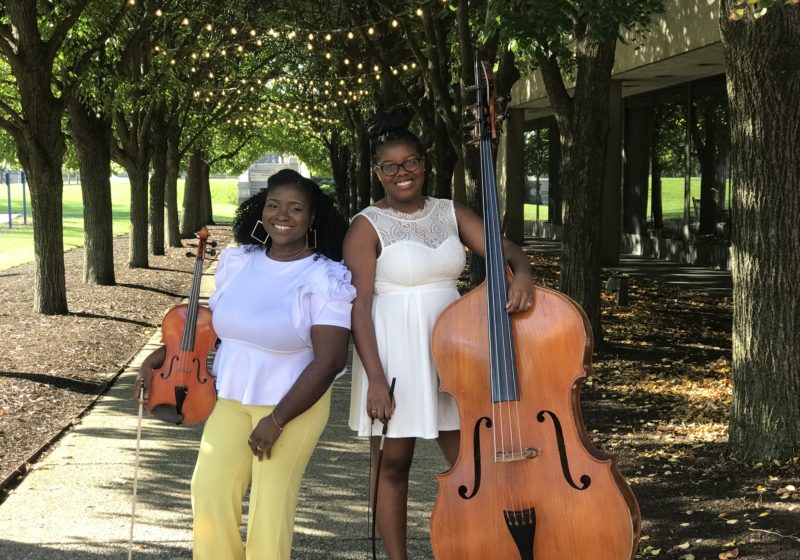As Spotify drops their end-of-year playlists, classical music seems left in the dust with all the appreciation for the new and the young. But through a podcast, two Eastman students have built bridges between the worlds of Wolfgang Amadeus Mozart and Kanye West.
Hosts Dalanie Harris and Katie Brown began “Classically Black” in November 2018. Harris, a senior majoring in double bass performance, acknowledged that classical music may seem inaccessible to those without a great understanding of the genre.
Despite her experience in classical music, Harris shared that she too has felt excluded and undermined in a predominantly white classical music culture built on centuries of elitism. Bringing these two concerns together, Harris and Brown started the podcast to create a far-reaching community for African-American musicians and combat exclusivity and inaccessibility in the classical music world.
Harris said audience members have described listening to the podcast as being a “fly on the wall,” included in a conversation between her and Brown.
In order to be as inclusive as possible, Harris said that they make it a point to speak colloquially about classical music. Brown often says that “classical music [is] not high art,” and the pair purposefully don’t write scripts beforehand for a more casual, authentic atmosphere. Harris and Brown also want to “show classical musicians that they don’t have to feel guilty for having other interests,” said Harris.
Many “Classically Black” episodes refer to a multitude of genres, especially during the intermission, a more “creative and light-hearted” segment that often features pop-culture references from Brown. Other times, entire episodes may focus on connecting and reconciling various genres. Harris cited a specific episode on the comparison between “rap beef and composer feuds.” In other episodes, Harris said they “incorporate some of the things [they] don’t see in the conversation around classical music,” such as cancel culture, both of which aren’t strictly related to classical music.
Another reason Harris and Brown started “Classically Black” was to create a community for African-American classical musicians, an often underrepresented group within the field. Harris remarked, “these people have been [there]; we are still here.”
The beginning was bumpy. The pair ventured off into a completely unknown realm, encountering obstacles along the way. Preparing to launch the first episodes, the two struggled to figure out how to upload their podcast via an RSS link, which would post their podcast to multiple platforms, such as Spotify and SoundCloud. Being music students, Harris remembers feeling “completely ridiculous” trying to write their own code for the RSS link.
Harris recalled a time when, after she and Brown had finished a recording, “Katie hit the save button, and then the episode just disappeared.” By that time, it was early morning, and Harris and Brown were exhausted. Faced with a difficult choice, Harris and Brown ultimately recorded an entire new episode to maintain authenticity. Looking back, Harris said “Classically Black” taught her dedication and determination. Today, the pair affectionately call the missing recording “Episode Atlantis.”
To Harris’ surprise, “Classically Black” has quickly grown and flourished over the past year. Recently, the podcast got a sponsorship from nkoda, a digital subscription app for sheet music, and a live-show, which is set for February at the Sphinx Connect Conference, a conference on diversity in the arts. So far, the duo has received enthusiastic responses from their listeners, including teachers, students, and professional musicians.
Harris and Brown have also landed speaking engagements at Tennessee State University, a table in the expo at this past Sphinx Connect Conference, and a feature in the Rochester Women Online publication, among other things. They’ve also just put out a new video series called “Put Me On,” named in reference to the colloquial phrase, in which the pair suggest classical pieces based on a person’s taste and feelings toward classical music.
Despite already enjoying much success with “Classically Black,” Harris anticipates that it’ll take more work and time for the podcast to reach its full potential, but she is hopeful about its start so far.
Although the stigma attached to classical music remains, through “Classically Black,” Harris and Brown are working to tear away at the age-old reputation of the genre, inviting all people to enjoy the wonders of classical music.
“One thing that sets us apart [is that] it’s really important to us [to show] that we’re not one-dimensional people because we study classical music,” Harris said.




